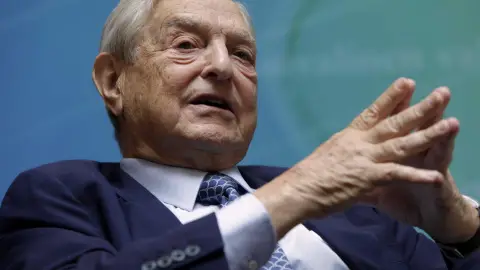India’s ED Investigates OSF and SEDF in Bengaluru Amid Global Scrutiny of Soros’ Influence
India’s Enforcement Directorate (ED) recently conducted searches at eight locations in Bengaluru, focusing on an investigation into alleged foreign exchange violations linked to the Open Society Foundations (OSF) and its investment arm, the Soros Economic Development Fund (SEDF). The investigation, which is being carried out under the Foreign Exchange Management Act (FEMA), centers on claims that OSF procured foreign direct investment (FDI) and misused funds, violating FEMA regulations.
The raids are part of a broader inquiry into whether OSF, along with several affiliated organizations, utilized foreign direct investment channels to bypass restrictions set by India’s Ministry of Home Affairs (MHA). The MHA had previously placed OSF on a “prior reference” list in 2016, restricting its ability to make unregulated donations to non-governmental organizations (NGOs) within India. According to sources, the ED is examining whether OSF’s subsidiaries in India funneled funds in a way that violated these restrictions.
Founded by billionaire George Soros, OSF operates globally with a focus on funding initiatives related to human rights, education, and governance. Since 1999, OSF has been active in India, funding a variety of social causes through partnerships and donations. However, some critics argue that OSF’s influence goes beyond philanthropy, suggesting that it aims to sway political outcomes by directing funds through NGOs. These concerns have fueled debates over the role of foreign organizations in influencing domestic affairs.
The ED’s actions follow increasing scrutiny over global philanthropic organizations. Similarly, across the Atlantic, George Soros has faced criticism for his business dealings, especially regarding his media investments. Recently, the U.S. Federal Communications Commission (FCC) approved Soros Fund Management’s acquisition of a significant stake in over 200 radio stations across the country. The deal, which was fast-tracked just weeks before a presidential election, raised concerns about the potential for foreign influence on American media. Critics worry that such media acquisitions could allow external interests to influence public discourse.
Both the Indian and U.S. cases share common themes related to foreign direct investment and the regulation of international funds. In India, the investigation into OSF and SEDF revolves around ensuring that foreign funds are used in a transparent and lawful manner. Similarly, the FCC’s approval of Soros’ media stake underscores the challenges regulators face when foreign investors seek to acquire significant influence in sensitive sectors such as media and communications.
The controversy surrounding OSF and Soros highlights the difficulty of balancing the benefits of global investment with the need to protect national interests. As governments grapple with these challenges, they must ensure that international investments are monitored effectively and in line with domestic regulations. In India, for example, the ED’s probe could lead to stronger enforcement of FEMA guidelines and increased scrutiny of foreign-funded NGOs to prevent potential misuse of international funds.
Media outlets in both India and the U.S. have closely followed these developments, shedding light on the broader questions surrounding foreign influence and regulation. In India, the ED’s raids have sparked public discussions on the need for a regulatory framework that can effectively manage the flow of foreign funds without compromising national sovereignty. The investigation is seen as an important step toward ensuring that foreign investments are directed transparently and in alignment with India’s laws.
Meanwhile, in the U.S., the media coverage of Soros’ acquisition of radio stations has prompted debates about how foreign ownership of media outlets should be regulated. Critics argue that allowing foreign entities to acquire significant stakes in domestic media could lead to the distortion of public opinion, while others emphasize the importance of maintaining an open market for media ownership.
Both cases reflect the broader trend of growing concern over the role of foreign capital in domestic affairs. The question of how to regulate foreign direct investment and media ownership remains a delicate issue that governments around the world are grappling with. While foreign investment can offer economic benefits, it is essential that it does not undermine local regulations or influence national policy in unintended ways.
For India, the investigation into OSF could lead to significant changes in how foreign funds are managed, especially in sectors that have direct implications for national security or public policy. The government may consider updating FEMA regulations and enhancing oversight of foreign investments in sensitive areas. At the same time, it will be important to maintain a balanced approach that fosters international collaboration while safeguarding the integrity of domestic affairs.
In conclusion, the investigations into OSF and Soros’ media acquisitions serve as reminders of the complex relationship between global finance and national governance. As international investment continues to shape economies worldwide, ensuring that regulations keep pace with these changes is crucial. Transparency, accountability, and rigorous oversight will be key to navigating the challenges posed by foreign influence in both the economic and media sectors. Governments must carefully consider how to maintain control over their domestic policies while embracing the opportunities that global cooperation and investment can provide.
